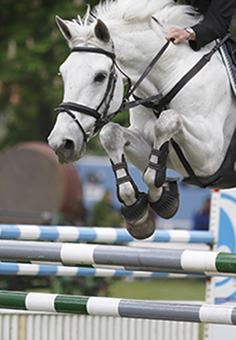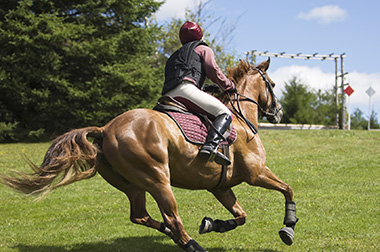 Below is an article by EquiLaw founder Steven M. Tarshis, featured in the April 2013 Issue of Horse News.
Below is an article by EquiLaw founder Steven M. Tarshis, featured in the April 2013 Issue of Horse News.
Are You Immune from Liability?
By Steven M. Tarshis, Esq.
As the show season approaches it would probably be a good idea for both first timers and seasoned competitors alike, to make sure they understand the liability laws here in New Jersey, associated with equine activities so that you can do everything possible to avoid the extremely unpleasant situation of finding yourself as a defendant in an equine lawsuit based upon your equine activities.
New Jersey Equine Activity Liability Act
New Jersey Statutes Annotated Section 5:15-1 has come to be known as the New Jersey Equine Activity Liability Act. It details all the rights and obligations of those of us who participate in equine activities in New Jersey and it spells out the liability you can incur if you injure a person as the result of your equine activities. It is important to note that the New Jersey Legislature in drafting the act, made a point of recognizing the importance of the equine industry in New Jersey. The statute specifically acknowledges the large numbers of residents and out of state visitors who participate in equine activities within our State and that those activities make a significant contribution to our economy. Further, the statute notes that horse farms are a major factor in sustaining open space in our State, which, obviously, is a very desirable objective.
Unlike other statutes that create liability for those who participate in a particular activity, the equine liability statute takes a somewhat opposite approach. Rather, the statute makes it very clear that many equine activities have an inherent risk and that people who participate in those activities knowingly assume that risk. Therefore, with the exception of certain activities that are spelled out in the statute, since a participant knowingly assumes the risk in an inherently dangerous activity, the statute does not allow a participant to sue anyone and recovery damages due to an injury.
The exceptions to the general rule that there can be no equine lawsuit and recovery for damages suffered as the result of participating in an equine activity are worth noting. The following is a list of those exceptions:
- Knowingly providing equipment or tack that is faulty and it causes or contributes to an injury.
- Based upon a participant’s, or their parent’s or guardian’s representation of their equine abilities, failure to make a reasonable effort to determine the true nature of that person’s ability to ride or manage a particular horse.
- A case in which a participant is injured or killed by a dangerous latent condition on property owned or controlled by the equine operator and warning signs have not been posted.
- A negligent act or a failure to act, by the equine operator ( trainer, farm owner, etc.) that constitutes negligent disregard for the participant’s safety, and that negligent act causes injury.
- Intentional injuries to the participant caused by the operator.
Should you suffer or cause an injury that falls under one of the exceptions listed above, you can sue the equine operator or be sued. As a preliminary condition to the commencement of an equine lawsuit, the injured party must file a written report with the equine operator within 180 of the injury. Failure to provide the report in a timely manner may bar a person’s right to sue. Further, any equine lawsuit relating to an injury must be commenced within 2 years of the date of the injury, unless the injured party was a minor who did not have a parent or guardian present at the time of the injury. If a minor is injured the two year time period is delayed until the minor reaches the age of majority.

There are many more aspects of the statute that are not discussed here and all provisions of the statute should be known to all equine participants. The statute is not very long or written in confusing legalese. I encourage everyone who participates in equine activities to read it and fully understand it’s meaning. https://asci.uvm.edu/equine/law/equine/nj_equ.htm
Hopefully none of us will ever have the occasion to experience the statute as a plaintiff or a defendant in an equine lawsuit, but it is worthwhile to still understand. Let’s all hope for a great and safe season for each of us and our equine partners.
Steven M. Tarshis, Equine Lawyer
Steven M. Tarshis has joined his 30 year career as a highly regarded business and real estate attorney with his lifelong passion for horses as a competitor, owner and sponsor to create a law practice devoted exclusively to the equestrian community.

